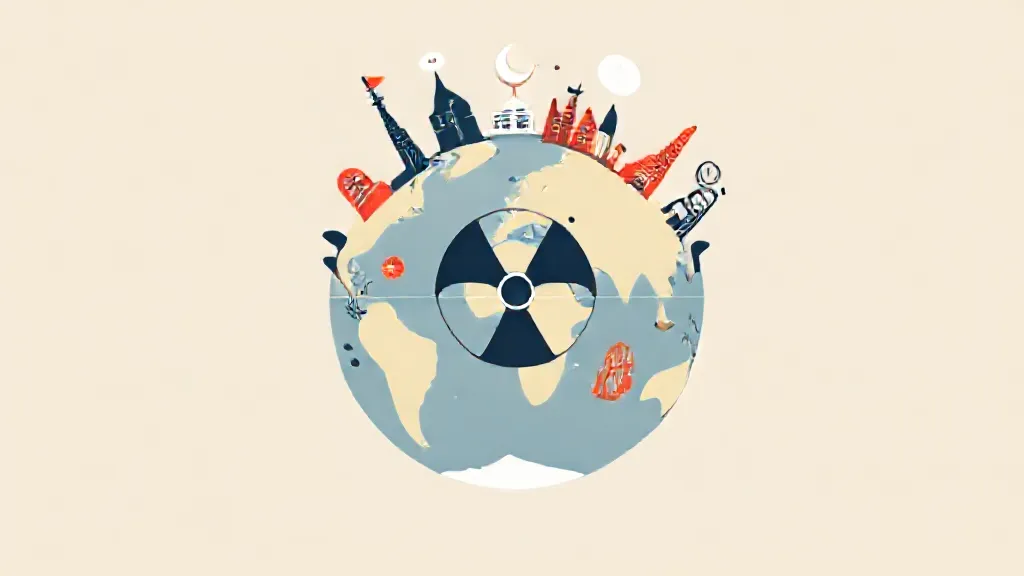The dawn of the Atomic Age marked a pivotal moment in global history, fundamentally reshaping the landscape of international relations and power dynamics. Following the detonation of atomic bombs in Hiroshima and Nagasaki in 1945, nations around the world began to grapple with the implications of nuclear weaponry, not only as a means of warfare but as a tool for political leverage and deterrence. This article delves into how the Atomic Age has influenced global politics, examining key events, ideologies, and the ongoing debates surrounding nuclear proliferation.
The Birth of Nuclear Deterrence
One of the most significant changes brought about by the Atomic Age was the establishment of nuclear deterrence as a cornerstone of national security strategies. The concept revolves around the idea that the possession of nuclear weapons deters adversaries from engaging in military conflict due to the potential for catastrophic consequences. This paradigm shift was notably exemplified during the Cold War, where the United States and the Soviet Union engaged in an arms race, each striving to outmatch the other's nuclear capabilities.
The doctrine of Mutually Assured Destruction (MAD) emerged, positing that any nuclear exchange would result in the total annihilation of both parties, thereby maintaining a tense but stable peace.
The Emergence of International Treaties
In response to the growing threat of nuclear proliferation, various international treaties were established to regulate and limit the spread of nuclear weapons. The Treaty on the Non-Proliferation of Nuclear Weapons (NPT), signed in 1968, aimed to prevent the further spread of nuclear weapons and promote peaceful uses of nuclear energy.
This treaty has been central to global disarmament efforts, yet it has also been a source of contention, particularly among nations that feel marginalized or threatened by nuclear-armed states. The ongoing discussions surrounding the NPT illustrate the complexities of balancing national security interests with global disarmament goals.
The Role of Nuclear Weapons in Geopolitical Conflicts
Nuclear weapons have also played a critical role in shaping geopolitical conflicts and alliances.
For instance, the Korean War (1950-1953) and the Vietnam War (1955-1975) were heavily influenced by the nuclear capabilities of the United States and the Soviet Union, as both superpowers sought to exert influence over their respective regions. Additionally, the proliferation of nuclear weapons to countries such as India, Pakistan, and North Korea has further complicated international relations, leading to new security dilemmas and regional tensions.
The Influence of Public Perception and Anti-Nuclear Movements
Public perception of nuclear weapons has significantly influenced global politics, with widespread anti-nuclear movements emerging in response to the perceived threat of nuclear war.
The fear of nuclear holocaust galvanized public opinion in the 1980s, leading to mass protests and calls for disarmament. This grassroots activism has pressured governments to reconsider their nuclear policies and engage in disarmament talks, reflecting the power of civil society in shaping political agendas.
Technological Advancements and New Threats
The Atomic Age has not only changed the nature of warfare but has also introduced new technological advancements that pose additional threats.
The development of intercontinental ballistic missiles (ICBMs) and advanced delivery systems has made it easier for nations to launch nuclear strikes, raising concerns about accidental launches or unauthorized use. Furthermore, the rise of cyber warfare has added a new dimension to national security, as states must now contend with the vulnerabilities of their nuclear arsenals in an increasingly digital world.
The Ongoing Debate over Nuclear Energy
While nuclear weapons have dominated discussions surrounding the Atomic Age, the peaceful use of nuclear energy has also sparked significant debate.
Proponents argue that nuclear energy is a vital component of a sustainable energy future, capable of reducing reliance on fossil fuels and combating climate change. However, concerns about nuclear accidents, waste disposal, and the potential for dual-use technology—where civilian nuclear programs could be repurposed for military applications—continue to fuel controversy and complicate international relations.
The Future of Nuclear Politics
As we move further into the 21st century, the legacy of the Atomic Age continues to shape global politics.
The emergence of new nuclear states, coupled with the evolving geopolitical landscape, necessitates ongoing dialogue and cooperation among nations. The challenges of disarmament, non-proliferation, and the ethical implications of nuclear weapons remain pressing issues that require collective action and innovative solutions.
Conclusion: A Complex Legacy
In conclusion, the Atomic Age has fundamentally altered global politics, introducing new dynamics of power, security, and international cooperation.
The implications of nuclear weapons extend far beyond military strategy, influencing diplomatic relations, public opinion, and the very fabric of global governance. As nations navigate the complexities of the post-Atomic Age, understanding this legacy is essential for fostering a more peaceful and secure world.
